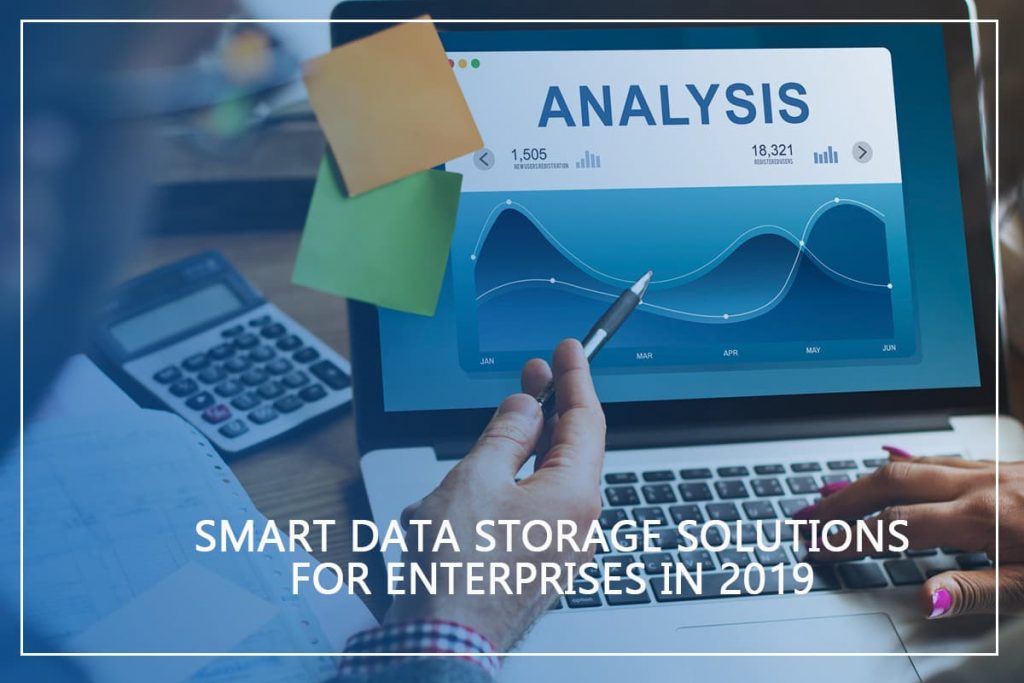Smart Data Storage Solutions for Enterprises in 2019
There is no doubt that data and information flows like lifeblood through the core of each business organization. However, we have to understand that data is not a static entity. It grows, multiplies and crucially affects a firm’s future. This dynamic nature of information creates the need for sophisticated storage solutions.
Data storage becomes fundamental for your enterprise especially when you’re:
- Investing in high-quality graphics and heavy audio-visuals for optimizing your online posts and require an extended space to make this marketing strategy a reality
- Seeking to reinforce your security shield against a horde of threats that might jeopardize your business’s operations
- Hoping to back up your records in case of a catastrophic deletion or any other contingency
- Aiming to modify your system applications, software and other technical infrastructure by installing the latest hardcore advances and updates, which naturally require more space than your current hard drive allows
So on and so forth. Whatever the reason, striving for better storage solutions can only increase the longevity and stability of your current enterprise and enable it to smoothly master the turbulent waves of the commercial future. Now, coming back to the topic at hand. What range of data storage options are available to you and how can you implement them collectively in the next quarter? A healthy data storage strategy consists of a mix of both online and offline solutions, like the ones that are stated below. Read on to find out.
Online Storage Solutions
Invention of the internet has revolutionized everything from basic individual interactivity to complex societal functionality. You can connect, share and shop online with a simple tap on your smartphone screen, provided you’re hooked with a fast network like Windstream communications or a similar provider. Not only that, the internet advancement has changed the game of data storage for enterprises too, with the advent of the following online solutions:
- Cloud Storage — This service enables you to store your most important files and documents on a remote network server, as provided by the vendor. Once your data gets saved on the cloud it can be accessed from anywhere in the world and via any device that has cloud compatibility. This prevents crucial information from getting lost due to ordinary device damage. Moreover, the data you store on the cloud can be easily shared too with other individuals who’re given the password-protected access. This eliminates the need to send files via email that may or may not get spammed or are malware-ridden. Some of the most popular cloud vendors include AWS, Microsoft Azure and Google Cloud, etc.
- NAS Devices — This solution works like a “centralized disk capacity” inside a unique IP network environment of an organization — its own “private” cloud. The device itself consists of at least four drive bays, which assimilate and distribute data among the clients via an efficient storage management system. This in-house storage network can be accessed via standard Ethernet port once the clients register the unique IP of the Network Attached Storage device that’s been assigned to their circle. NAS devices are relatively cheaper and excellent for enterprises that have small functional offices operating all across the continents. Leading NAS vendors include Apple Corp., Accusys Storage Ltd. and ClearSky Data, etc.
Offline Storage Solutions
For times when you’re not in a networking range and still need to save your information for later use the following offline solutions will come in handy:
- External Hard Drives — This is a standalone device, which primarily serves as a “data backup” solution for your computers that are running out of space. Physically, it resembles a slender, rectangular block, which you can slide in your bag and carry around with ease. In order to attach it to your laptop or PC, you can use the USB slot on your device or take the help of a FireWire connection. External hard drives are usually known for the wonderful storage capacities that they provide. An 8TB Western Digital “My Book” costs $149.99 on Amazon, whereas a Seagate 2TB Backup Plus Ultra Touch comes for $89.99 on Amazon, etc.
- SSD Flash Drives — If you’re a traveling executive or supervise mobile professionals, then this data storage drive is ideal for you and your team. Why? Because, it is quite compact (the size of your thumb), highly portable (can be easily carried around in a shirt pocket or even strung around a keychain), has a simple USB interface (makes it compatible with any device, whether your laptop or PC that has a USB port), consists of flash-cells based memory (capable of storing anything from emails, bookmarks, apps to calendar entries, etc., like a computer’s RAM) and provides protective encryption in case your device gets stolen or lost. On top of this, a USB flash memory drive is inexpensive. A supreme-quality 256GB SanDisk Ultra USB costs only $47.61 on Wallmart, whereas a 128GB SanDisk Cruzer is available for $17.99 on Best Buy.
By implementing the aforementioned data storage solutions, you’ll ensure your enterprise’s smooth transition into an uber-technological future.

